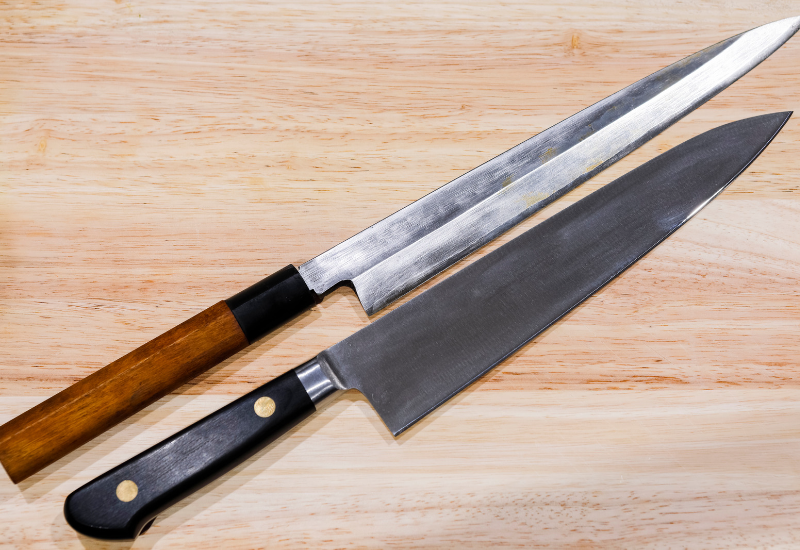
The Unique Features of a Japanese Knife
Japanese knives, known as “和包丁” (Wa-bōchō), have been prized worldwide for their unparalleled sharpness, balance, and aesthetics. They possess a rich history and unique features that have been passed down through generations of Japanese craftsmen. Here we explore the characteristics that make these tools truly exceptional.
Material
Japanese knives are often made from high-carbon steel, giving them an extraordinary edge and long-lasting sharpness. Some top-tier knives are made with a specialized steel called ‘hagane,’ which is known for its hardness and sharpness retention.
Sharpness
The sharpness of Japanese knives is truly a marvel. Their blades are typically ground to a finer angle than Western knives, which allows them to cut with surgical precision. This feature makes them ideal for preparing intricate dishes that require delicate slicing, such as sushi and sashimi.
Single-Bevel Design
Most Japanese knives are designed with a single-bevel edge, meaning they are sharpened on one side only. This design provides a cleaner cut and allows the chef to execute precise, controlled slices, which is particularly useful in Japanese cuisine.
Aesthetics and Craftsmanship
Japanese knives aren’t merely tools; they are also works of art. Each knife reflects the skill, dedication, and soul of the artisan who created it. The elegant design often incorporates a ‘hamon,’ or wave pattern, which is not just decorative but also demonstrates the blade’s hardness.
Types of Japanese Knives
There are several types of Japanese knives, each designed for a specific task. For example, the ‘yanagiba’ is used for slicing raw fish, the ‘deba’ for cutting through fish bones and hard vegetables, and the ‘nakiri’ for chopping vegetables.
Maintenance
Japanese knives require regular maintenance to keep them in peak condition. They need to be hand-washed and dried immediately to prevent rusting and should be sharpened regularly with a water stone to maintain their razor-sharp edge.
Cultural Significance
Lastly, Japanese knives carry a cultural significance that transcends their practical use. They are seen as extensions of the chef’s hand and spirit, embodying the Japanese philosophy of harmony and respect for the ingredients.
In conclusion, Japanese knives stand as a testament to Japan’s long-standing tradition of craftsmanship and dedication to quality. Their unique features not only provide unrivaled performance in the kitchen but also offer a deep cultural experience, making them a prized possession for chefs around the globe.
